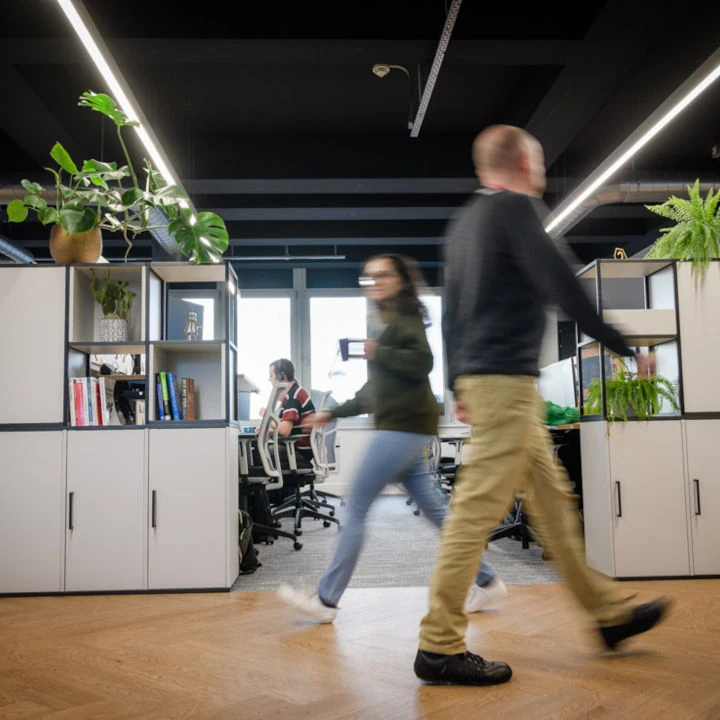No one wants to come second place. No one starts their day thinking “I want to come second place today”. It’s unrealistic. If there is a chance to win, people want to win. This is true for casual running races at the park, for the family board game night that somehow always ends in an argument, and for hackathons.
We recently participated in the 2-day Project:Hack 6 hackathon hosted by the Project Data Analytics Community https://projectdataanalytics.uk/ which focuses on exploring and sharing how to leverage big data, machine learning and AI within a project, programme and portfolio environment. This was the perfect hackathon for us because this area is our day-to-day work at the Oakland Group. The hackathon had 12 different challenges you could work on, ranging from tracking COVID-19 transmission on construction sites to identifying sarcasm in user comments.. I chose Challenge 9 (Using machine learning to predict variance in activity duration). Can you guess what my specialty is? To my complete surprise, when I joined the slack channel, by sheer coincidence I saw that Eva had also chosen this challenge! Given that we work together and that we already work in the field, one could argue that we had an unfair advantage….and that argument would be correct! Eva and I are an amazing team. When we work together, sparks fly! We communicate clearly, we motivate each other, we keep each other focused, and we know each other well enough to know when to push harder and when to ease up. All of this makes for a beautiful working relationship. So yes, big unfair advantage……or so we thought!
After 48 hours of planning, discussing, building, developing, and coding, we submitted a Power BI dashboard and a machine learning model combined with a PowerPoint presentation recorded over Zoom. After careful examination from the judges, we were told that *cue dramatic music* we came second place. It seems the advantage was not as big as we thought! Hats off to the winning team though. Their challenge was to develop a dynamic Power BI Dashboard and Power App to track the progress of a hotel construction project. They genuinely deserved to win. Their presentation was seamless and what they managed to produce over the two days was truly impressive. Their winning presentation can be viewed here https://youtu.be/1WzW0BPZvoI
After retrospectively analysing the competition weekend and the feedback, here is our advice on how to win (or at least come second in) a hackathon:
1.) Be lucky
In group projects, you never know what the group chemistry is going to be like. If you’re lucky, you will have a group consisting of people who get on well, who work as a team, and who get the job done. If you’re unlucky, the group will very quickly descend into chaos! Also, I’m sure we all have horror stories of working as a group and someone doesn’t do any work. If you’re lucky, this person won’t be in your group during the hackathon. If they are…unlucky! We were also quite lucky because we had a very helpful client sponsoring the challenge. This meant we were able to ask them questions, get feedback on our progress, and constantly check in to make sure we were heading in the right direction. We are very grateful to Pedro and the team at Baker Hughes https://www.bakerhughes.com/
2.) Play to your strengths
My strength is machine learning so in hackathons I play to my strengths. If I volunteered myself during the hackathon to do the mathematical calculations, that wouldn’t make sense-actually, I have a PhD in Maths. That’s a bad example. If I volunteered to build a Power BI front end, I-actually, I have quite a bit of experience with Power BI. Hmmm, the point I’m trying to make is do the things you are good at and have experience in. Don’t do things that are new to you or that you may find difficult. That way, you’re being the most helpful you can be to the team. If you want, you can completely contradict this point and explore areas that are new to you. Hackathons provide a low-stakes opportunity for you to acquire a new skill. Depending on what the prizes are for winning the hackathon and how competitive your team is, this may be a bad idea. Proceed with caution!
3a) Everyone’s opinion is important
Hackathons are a team effort. Everyone on the team has something to contribute and everyone can learn something from the team. For these reasons, it’s important to listen to everyone’s opinion and ensure they are heard. This increases team chemistry, team morale, and everyone is more likely to contribute.
3b) Everyone’s opinion is not critical
Hackathons have deadlines. If there is someone on your team who likes to talk in hour-long monologues or who always contradicts any group decision, that deadline is going to approach very quickly. These people will disrupt the flow of the work, decrease team morale, and are very likely not going to contribute much (See point 1 – unlucky!). Identify these people early in the hackathon and take appropriate actions. Trust me!
4.) Focus on the goal
There are different strategies in a hackathon. You can play to win the hackathon, or you can play to impress the client who sponsors the challenge. They are two very different success criteria. To win the hackathon, you want a shiny presentation that meets the judges’ requirements. To impress the client, you want something they can pick up and use once the hackathon is over. Sometimes these criteria overlap, sometimes they don’t. It’s important that you know what you are focusing on, especially given the time constraints in a hackathon. In either scenario, presentation is important. It can really make or break your work. You can have the most amazing solution but if it doesn’t look good, it doesn’t present well, and it’s not explained clearly, you will struggle to impress both the judges and the client. Presentation is key!
So there’s our advice to win (or at least come second in) a hackathon: be lucky, play to your strengths, everyone’s opinion is important but not critical, and to focus on the goal. Overall, this hackathon hosted by the Project Data Analytics Community was a lot of fun. Given the circumstances of COVID-19, lockdowns, and social distancing, this virtual hackathon hit all the right notes. Working from home is tough (see my blog on surviving and thriving while working from home here (https://bit.ly/3ctnlnb) but the organisers ran this hackathon in such a way that I didn’t even miss my weekend. Truly phenomenal, first-place quality work!
Dr. Kevin Minors, Data Scientist at The Oakland Group
Eva Fernández Marín, Technical Business Analyst at The Oakland Group


